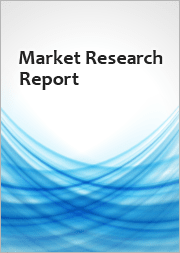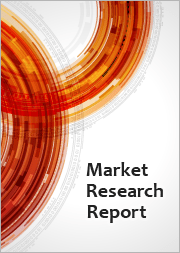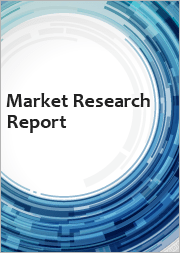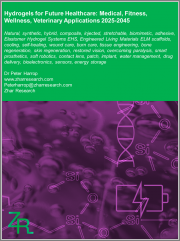
|
시장보고서
상품코드
1722516
하이드로겔 시장 보고서 : 원재료 유형, 형태, 조성, 용도, 지역별(2025-2033년)Hydrogel Market Report by Raw Material Type, Form, Composition (Polyacrylate, Polyacrylamide, Silicone-modified Hydrogels, and Others), Application, and Region 2025-2033 |
||||||
세계 하이드로겔 시장 규모는 2024년 291억 달러에 달했습니다. 향후 IMARC Group은 2033년까지 시장 규모가 444억 달러에 달해 2025년부터 2033년까지 4.8%의 연평균 성장률(CAGR)을 기록할 것으로 예상하고 있습니다. 생리대, 아기 기저귀, 종이 타월에 대한 수요 증가와 헬스케어 산업 전반의 수많은 기술 발전이 시장을 강화하고 있습니다.
하이드로겔 시장 분석:
- 주요 시장 촉진요인 : 기존 의료용 제품의 저장 안정성을 높이기 위해 제약 산업에서 하이드로겔의 용도가 확대되고 있는 것이 시장을 자극하고 있습니다. 또한, 비정부기구(NGO)와 정부 기관이 생리 위생에 대한 인식을 확산시키기 위해 우호적인 정책을 내놓고 있는 것도 하이드로겔 시장에 긍정적인 영향을 미치고 있습니다.
- 주요 시장 동향 : 만성 상처 치료를 개선하기 위해 비용 효율적인 하이드로겔 드레싱을 도입하기 위한 연구 개발 활동에 대한 투자 증가는 시장을 강화하는 새로운 트렌드 중 하나입니다. 이와는 별도로 수술 부위 감염을 예방하기 위한 첨단 상처 관리 제품에 대한 수요 증가는 또 다른 중요한 성장 촉진요인으로 작용하고 있습니다.
- 경쟁 상황 : 세계 시장 내 주요 기업으로는 3M Company, Ashland Global Holdings Inc., B. Braun Melsungen AG, Cardinal Health Inc., Coloplast A/S, Essity AB, Evonik Industries AG, Hoya Corporation, Integra LifeSciences, Johnson & Johnson, Koninklijke DSM N.V., Medline Industries Inc., Medtronic plc, Smith & Nephew plc, The Cooper Companies Inc. 등이 있습니다.
- 지리적 동향 : 인도, 인도네시아, 중국 등의 국가에서 개인 위생에 대한 인식이 높아짐에 따라 아시아태평양이 현재 세계 시장을 주도하고 있습니다. 또한, 생명공학 및 재료과학의 지속적인 발전은 아시아태평양의 시장 성장에 박차를 가하고 있습니다.
- 도전과 기회 : 엄격한 규제 프레임워크는 시간과 비용이 많이 들며, 이는 시장의 걸림돌로 작용하고 있습니다. 그러나 효과적인 공급망 관리 전략과 전략적 계획이 향후 몇 년 동안 시장을 활성화시킬 것으로 예상됩니다.
하이드로겔 시장 동향:
의료 용도의 증가
다양한 지역에서 제약 산업이 확대되고 있는 것이 시장을 이끄는 주요 요인 중 하나입니다. 인도 의약품수출촉진위원회 사무국장에 따르면, 2021-22년도에 의약품 중간체를 포함한 의약품이 약 246억 2,000만 달러 상당의 의약품이 수출되었습니다. 또한 2022년 4월부터 10월까지 인도의 의약품 수출액은 4.22% 증가한 145억 7,000만 달러에 달했습니다. 이 외에도, 하이드로겔 기반 약물전달 시스템에 대한 임상시험의 증가는 제약 회사의 표적 치료에 대한 투자를 촉진하여 하이드로겔 시장의 수익을 높이고 있으며, NBCI가 2019년에 보고한 데이터에 따르면, 하이드로겔은 약 223건의 임상시험에서 치료 또는 진단 목적으로 사용되었습니다. 사용되었습니다. 또한, 만성 상처 치료를 개선하기 위한 비용 효율적인 제품을 개발하기 위한 R&D 활동에 대한 광범위한 투자도 중요한 성장 촉진요인으로 작용하고 있습니다. 예를 들어, 2024년 5월 오타와대학교 의과대학의 과학자 팀은 피부 상처를 최소화하고, 손상된 각막의 모양을 교정하고, 손상된 심근에 치료제를 전달할 수 있는 펩타이드 기반 하이드로겔을 발표하였습니다. 마찬가지로, 2024년 5월 네이처 나노테크놀러지(Nature Nanotechnology)지에 발표된 논문에 따르면, 생체 모방 나노자임 아밀로이드 하이드로겔은 경구 투여를 통해 알코올 섭취의 유해한 영향을 완화하는 데 도움이 될 수 있다고 합니다. 그 결과, 제약 산업 전반에 걸쳐 보다 효과적이고 환자 친화적인 치료 옵션이 출시되어 향후 몇 년 동안 하이드로겔 시장에 박차를 가할 것으로 예상됩니다.
개인 위생에 대한 관심 증가
흡수력이 높고, 팽창 압력과 흡입력을 높인 얇은 패드를 만들기 위해 생리대에 하이드로겔의 사용이 증가하고 있는 것이 시장에 긍정적인 영향을 미치고 있습니다. 생리 위생에 대한 인식을 확산시키기 위해 규제 기관이 생식 및 아동 건강 프로그램, 에코 펨, 마이 패드 등 다양한 인식 개선 프로그램을 시작한 것이 생리대 사용을 증가시키고 있으며, 이는 시장을 자극하고 있습니다. 보고서에 따르면 인도의 생리대 시장 규모는 2023년 7억 5,850만 달러에 달할 것으로 예상됩니다. 향후 IMARC Group은 2032년까지 시장 규모가 16억 5,960만 달러에 달해 2024년부터 2032년까지 8.8%의 연평균 성장률(CAGR)을 기록할 것으로 예상했습니다. 이 외에도 세계은행 그룹, 세계보건기구(WHO), 유니세프(UNICEF) 등 다수의 정부 기관이 여성과 사춘기 소녀를 대상으로 생리 위생 관리(MHM) 프로그램을 도입하고 있습니다. 또한, 실크 섬유소, 콜라겐, 히알루론산 등 피부 친화적인 성분을 함유하고 있어 퍼스널케어 제품 판매가 증가하고 있는 점도 하이드로겔의 채택에 박차를 가하고 있습니다. 이 지역의 약 5억 명의 소비자들이 행복감을 높이고, 건강을 지키고, 자존감을 높이기 위해 매일 화장품과 퍼스널케어 제품을 사용하고 있습니다.
참신한 기술 발전
안전하고 유연한 배터리 제조를 위한 하이드로겔 전해질 도입 등 기술 혁신의 증가는 세계 시장에 박차를 가하고 있습니다. 예를 들어, 2023년 9월 Angewandte Chemie International Edition지에 게재된 연구 결과에 따르면, 중국과학원(CAS)의 일부인 칭다오 생물에너지 및 바이오공정기술연구소(QIBEBT)의 연구원들은 비정상적으로 높은 염분 농도를 가진 혁신적인 하이드로겔 전해질을 개발했습니다. 이 개발은 물로 인한 부작용을 효과적으로 완화하여 수성 나트륨 이온 전지의 사이클 성능 확장 및 실용화의 길을 열었습니다. 이 외에도 하이드로겔 기반 센서의 유연성과 정확한 변형 감지 능력으로 인한 하이드로겔 기반 센서의 인기 증가는 하이드로겔 시장의 최근 기회 중 하나입니다. 예를 들어, 2023년 7월, 수도사범대학 화학과 Weixing Song 박사가 쓴 총평은 다양한 하이드로겔 센서의 개발 현황을 강조하고 기계적, 전기적 성능을 향상시키는 전략을 강조합니다. 또한, 이 조사 성과는 고성능 웨어러블 하이드로겔 센서의 부품과 구조를 설계하는 데 있어 귀중한 자료가 될 것입니다. 이는 향후 몇 년 동안 시장을 계속 활성화시킬 것으로 보입니다.
목차
제1장 서문
제2장 조사 범위와 조사 방법
- 조사 목적
- 이해관계자
- 데이터 소스
- 1차 정보
- 2차 정보
- 시장 추정
- 상향식 접근
- 하향식 접근
- 조사 방법
제3장 주요 요약
제4장 소개
- 개요
- 주요 업계 동향
제5장 세계의 하이드로겔 시장
- 시장 개요
- 시장 실적
- COVID-19의 영향
- 시장 예측
제6장 시장 내역 : 원재료 유형별
- 합성
- 천연
- 하이브리드
제7장 시장 내역 : 형태별
- 비정질
- 반결정성
- 결정질
제8장 시장 내역 : 조성별
- 폴리아크릴레이트
- 폴리아크릴아미드
- 실리콘 개질 하이드로겔(SiH)
- 기타
제9장 시장 내역 : 용도별
- 콘택트렌즈
- 퍼스널케어와 위생
- 창상관리
- 약물전달
- 조직공학
- 기타
제10장 시장 내역 : 지역별
- 북미
- 미국
- 캐나다
- 아시아태평양
- 중국
- 일본
- 인도
- 한국
- 호주
- 인도네시아
- 기타
- 유럽
- 독일
- 프랑스
- 영국
- 이탈리아
- 스페인
- 러시아
- 기타
- 라틴아메리카
- 브라질
- 멕시코
- 기타
- 중동 및 아프리카
- 시장 내역 : 국가별
제11장 SWOT 분석
- 개요
- 강점
- 약점
- 기회
- 위협
제12장 밸류체인 분석
제13장 Porter's Five Forces 분석
- 개요
- 구매자의 교섭력
- 공급 기업의 교섭력
- 경쟁 정도
- 신규 참여업체의 위협
- 대체품의 위협
제14장 가격 분석
제15장 경쟁 구도
- 시장 구조
- 주요 기업
- 주요 기업 개요
- 3M Company
- Ashland Global Holdings Inc.
- B. Braun Melsungen AG
- Cardinal Health Inc.
- Coloplast A/S
- Essity AB
- Evonik Industries AG
- Hoya Corporation
- Integra LifeSciences
- Johnson & Johnson
- Koninklijke DSM N.V.
- Medline Industries Inc.
- Medtronic plc
- Smith & Nephew plc
- The Cooper Companies Inc.
The global hydrogel market size reached USD 29.1 Billion in 2024. Looking forward, IMARC Group expects the market to reach USD 44.4 Billion by 2033, exhibiting a growth rate (CAGR) of 4.8% during 2025-2033. The increasing demand for sanitary napkins, baby diapers, and paper towels, coupled with numerous technological advancements across the healthcare industry, are bolstering the market.
Hydrogel Market Analysis:
- Major Market Drivers: The widespread applications of hydrogels in the pharmaceutical industry to increase the storage stability of existing medical products are stimulating the market. Moreover, the launch of favorable policies by non-governmental organizations (NGOs) and government bodies to spread awareness about menstrual hygiene is also positively influencing the hydrogel market.
- Key Market Trends: The growing investments in R&D activities to introduce cost-effective hydrogel dressings for improving the treatment of chronic wounds are among the emerging trends bolstering the market. Apart from this, the increasing demand for advanced wound care products to prevent surgical site infections is further acting as another significant growth-inducing factor.
- Competitive Landscape: Some of the prominent companies in the global market include 3M Company, Ashland Global Holdings Inc., B. Braun Melsungen AG, Cardinal Health Inc., Coloplast A/S, Essity AB, Evonik Industries AG, Hoya Corporation, Integra LifeSciences, Johnson & Johnson, Koninklijke DSM N.V., Medline Industries Inc., Medtronic plc, Smith & Nephew plc, and The Cooper Companies Inc., among many others.
- Geographical Trends: Asia-Pacific currently dominates the global market, owing to the growing awareness towards personal hygiene in countries like India, Indonesia, China, etc. Additionally, continuous improvements in biotechnology and materials science are also fueling the market across Asia-Pacific.
- Challenges and Opportunities: Stringent regulatory frameworks can be time-consuming and expensive, which is hampering the market. However, effective supply chain management strategies and strategic planning are expected to fuel the market in the coming years.
Hydrogel Market Trends:
Rising Medical Applications
The expanding pharmaceutical industry across various regions is one of the primary factors propelling the market. According to the Director General of the Pharmaceutical Export Promotion Council of India, the country exported approximately US$ 24.62 Billion worth of pharmaceutical products, including drug intermediates, in FY2021-22. Additionally, pharmaceutical exports in India increased by 4.22% from April to October 2022, reaching US$ 14.57 Billion. Besides this, the growing number of clinical trials related to hydrogel-based drug delivery systems are encouraging pharma companies to invest in targeted therapies, which is elevating the hydrogel market revenue. As per the data reported by NBCI in 2019, hydrogel was used for therapeutic or diagnostic purposes in around 223 clinical trials. Moreover, extensive investments in R&D activities to develop cost-effective products for improving the treatment of chronic wounds are also acting as significant growth-inducing factors. For instance, in May 2024, a team of scientists at the uOttawa Faculty of Medicine introduced peptide-based hydrogels that can minimize skin wounds, reshape and heal injured corneas, deliver therapeutics to damaged heart muscle, etc. Similarly, according to an article published by Nature Nanotechnology in May 2024, biomimetic-nanozyme amyloid hydrogel aids in alleviating the harmful effects of alcohol consumption via oral administration. Consequently, the launch of more effective and patient-friendly treatment options across the pharmaceutical industry is anticipated to fuel the hydrogel market in the coming years.
Growing Personal Hygiene Concerns
The growing utilization of hydrogels in sanitary products to make thinner pads with higher absorbency and increased swelling pressure and suction power is positively influencing the market. The launch of various awareness programs, such as the Reproductive and Child Health Program, Eco Femme, My Pad, etc., by regulatory bodies to spread awareness about menstrual hygiene is augmenting the use of sanitary napkins, which, in turn, is stimulating the market. According to the report published by IMARC, the Indian sanitary napkin market size reached US$ 758.5 Million in 2023. Looking forward, IMARC Group anticipated the market to reach US$ 1,659.6 Million by 2032, exhibiting a growth rate (CAGR) of 8.8% during 2024-2032. In addition to this, numerous government organizations, such as the World Bank Group, World Health Organization, UNICEF, etc., are introducing menstrual hygiene management (MHM) programs for women and adolescent girls. Furthermore, the growing sales of personal care items are also augmenting the adoption of hydrogel, as it comprises skin-friendly ingredients, including silk fibroin, collagen, hyaluronic acid, etc. According to the data published in Cosmetic Europe, roughly 500 million consumers across the region utilize cosmetic and personal care products every day to enhance their well-being, protect their health, boost their self-esteem, etc.
Novel Technological Advancements
The increasing technological innovations, including the introduction of hydrogel electrolytes for producing safe and flexible batteries, are fueling the global market. For instance, according to the findings published in the journal Angewandte Chemie International Edition in September 2023, researchers at the Qingdao Institute of Bioenergy and Bioprocess Technology (QIBEBT), a part of the Chinese Academy of Sciences (CAS), created innovative hydrogel electrolyte with an unusually high salt concentration. This development effectively mitigates water-induced side reactions, paving the way for extended and practical cycling capabilities in aqueous sodium-ion batteries. Apart from this, the inflating popularity of hydrogel-based sensors due to their flexibility and ability to detect deformations accurately is one of the hydrogel market's recent opportunities. For example, in July 2023, a review written by Dr. Weixing Song from the Department of Chemistry at the Capital Normal University emphasized the development status of various hydrogel sensors and highlighted strategies to enhance their mechanical and electrical performance. Moreover, the findings are valuable for designing components and structures of high-performance wearable hydrogel sensors. This, in turn, will continue to fuel the market in the coming years.
Global Hydrogel Market Segmentation:
Breakup by Raw Material Type:
- Synthetic
- Natural
- Hybrid
Currently, synthetic accounts for the largest market share
Synthetic hydrogels have a higher capacity for water absorption than natural hydrogels, which is propelling the segment's growth. The amount of water in the hydrogel is usually determined by the properties of polymers and the density of networking. The inclusion of hydrophilic groups, such as -SO3H, -CONH2, -COOH, -NH2, -CONH, and -OH, contributes to the network's hydrophilicity. Synthetic hydrogels are gaining extensive traction, owing to their high-water content, which is elevating the hydrogel market's recent price. Besides this, they provide excellent support for neuronal tissue growth in areas of brain injury, suggesting a potential strategy for brain tissue restoration. For instance, in May 2023, researchers at Hong Kong University developed electroconductive hydrogels by using the hybrid assembly of polymeric nanofiber networks. Moreover, these synthetic hydrogels offer excellent mechanical strength. Consequently, they find applications in the engineering of various bioelectronic devices for cardiac or neural interfaces.
Breakup by Form:
- Amorphous
- Semi-crystalline
- Crystalline
Among these, semi-crystalline currently exhibits a clear dominance in the hydrogel market share
Semi-crystalline hydrogels refer to moderately water-swollen hydrogels containing crystalline domains. They exhibit optimal self-healing, melt-processability, and shape-memory functions. Furthermore, they find numerous applications, such as injectable gels, chemical motors, shape-memory hydrogels, smart inks for 3D or 4D printing, etc., as these hydrogels can undergo an abrupt and reversible change from a solid-like to a liquid-like state at the melting temperature. Additionally, the ability of these hydrogels to maintain a significant amount of water within their structure while displaying enhanced mechanical properties opens up possibilities for advanced uses in drug delivery systems, tissue engineering, and environmentally responsive technologies, where controlled responses to external stimuli are crucial.
Breakup by Composition:
- Polyacrylate
- Polyacrylamide
- Silicone-modified Hydrogels (SiH)
- Others
Currently, silicone-modified hydrogels (SiH) account for the majority of the global market share
Silicone-modified hydrogels (SiH) represent innovative materials that integrate the hydrophilic properties of hydrogels with the flexibility and durability of silicone. Additionally, they exhibit increased oxygen permeability, improved biocompatibility, enhanced mechanical strength, etc. Besides this, SiH finds extensive applications in the biomedical field, particularly in contact lens technology. Additionally, the integration of silicone improves the water retention abilities of the hydrogels, which is crucial for maintaining hydration and ensuring comfort in ocular applications. Beyond eye care, silicone-modified hydrogels are also being explored for wound dressing materials due to their ability to create a moist healing environment while being gentle on the skin. These characteristics also open up potential applications in drug delivery systems and tissue scaffolds, where controlled release and structural integrity are essential. This, in turn, is expected to fuel the hydrogel market outlook over the forecasted period.
Breakup by Application:
- Contact Lenses
- Personal Care and Hygiene
- Wound Care
- Drug Delivery
- Tissue Engineering
- Others
Among these, personal care and hygiene products hold the largest market share
The hygiene products comprising superabsorbent polymers, such as hydrogels, for absorbing large amounts of body fluids are gaining widespread popularity. As per the hydrogel market statistics, the increasing awareness about the importance of maintaining proper hygiene among infants, the expanding geriatric population, and the growing prevalence of functional and cognitive impairment are some of the key factors propelling the segment's growth. Besides this, the escalating demand for baby diapers is also acting as another significant growth-inducing factor. For example, according to IMARC, the global diaper market size reached US$ 85.2 Billion in 2023. Looking forward, IMARC Group expects the market to reach US$ 159.3 Billion by 2032, exhibiting a growth rate (CAGR) of 7% during 2024-2032. Additionally, the launch of favorable policies by government bodies to promote the adoption of sanitary products is stimulating the market. For instance, in India, the Karnataka Health Department introduced a scheme to provide free sanitary napkins to around 19 lakh girls aged 10 to 18 years in government-aided schools and colleges across the state.
Breakup by Region:
- North America
- United States
- Canada
- Asia-Pacific
- China
- Japan
- India
- South Korea
- Australia
- Indonesia
- Others
- Europe
- Germany
- France
- United Kingdom
- Italy
- Spain
- Russia
- Others
- Latin America
- Brazil
- Mexico
- Others
- Middle East and Africa
According to the hydrogel market overview, Asia-Pacific currently dominates the global market share
The market research report has also provided a comprehensive analysis of all the major regional markets, which include North America (the United States and Canada); Asia Pacific (China, Japan, India, South Korea, Australia, Indonesia, and others); Europe (Germany, France, the United Kingdom, Italy, Spain, Russia, and others); Latin America (Brazil, Mexico, and others); and the Middle East and Africa. According to the report, Asia Pacific accounted for the largest market share.
The increasing pharmaceutical industry is one of the key factors bolstering the market across the Asia-Pacific. For instance, according to CEIC Data, the pharmaceutical sales revenue across China in June 2022 accounted for US$ 223,946 Million as compared to US$ 146,041 Million in April 2022. This can be attributed to the diverse domestic drug production activities, comprising around 5,000 manufacturers and various small or medium-sized companies. Additionally, the widespread adoption of generic drugs is also acting as another significant growth-inducing factor. As per the Press Information Bureau (PIB), India is one of the world's major suppliers of generic medicines, accounting for 20% of the global supply by volume. Moreover, drugs across the country are exported to more than 200 countries, with the United States being the key market. Besides this, according to the Indian Brand Equity Foundation, the Indian pharma industry is expected to reach US$ 130 Billion by 2030. Apart from this, the introduction of advanced wound care products is anticipated to fuel the hydrogel market in Asia-Pacific over the forecasted period.
Competitive Landscape:
The market research report has provided a comprehensive analysis of the competitive landscape. Detailed profiles of all major hydrogel market companies have also been provided. Some of the key players in the market include:
- 3M Company
- Ashland Global Holdings Inc.
- B. Braun Melsungen AG
- Cardinal Health Inc.
- Coloplast A/S
- Essity AB
- Evonik Industries AG
- Hoya Corporation
- Integra LifeSciences
- Johnson & Johnson
- Koninklijke DSM N.V.
- Medline Industries Inc.
- Medtronic plc
- Smith & Nephew plc
- The Cooper Companies Inc.
Key Questions Answered in This Report
- 1.What was the size of the global hydrogel market in 2024?
- 2.What is the expected growth rate of the global hydrogel market during 2025-2033?
- 3.What are the key factors driving the global hydrogel market?
- 4.What has been the impact of COVID-19 on the global hydrogel market?
- 5.What is the breakup of the global hydrogel market based on the raw material type?
- 6.What is the breakup of the global hydrogel market based on the form?
- 7.What is the breakup of the global hydrogel market based on the composition?
- 8.What is the breakup of the global hydrogel market based on the application?
- 9.What are the key regions in the global hydrogel market?
- 10.Who are the key players/companies in the global hydrogel market?
Table of Contents
1 Preface
2 Scope and Methodology
- 2.1 Objectives of the Study
- 2.2 Stakeholders
- 2.3 Data Sources
- 2.3.1 Primary Sources
- 2.3.2 Secondary Sources
- 2.4 Market Estimation
- 2.4.1 Bottom-Up Approach
- 2.4.2 Top-Down Approach
- 2.5 Forecasting Methodology
3 Executive Summary
4 Introduction
- 4.1 Overview
- 4.2 Key Industry Trends
5 Global Hydrogel Market
- 5.1 Market Overview
- 5.2 Market Performance
- 5.3 Impact of COVID-19
- 5.4 Market Forecast
6 Market Breakup by Raw Material Type
- 6.1 Synthetic
- 6.1.1 Market Trends
- 6.1.2 Market Forecast
- 6.2 Natural
- 6.2.1 Market Trends
- 6.2.2 Market Forecast
- 6.3 Hybrid
- 6.3.1 Market Trends
- 6.3.2 Market Forecast
7 Market Breakup by Form
- 7.1 Amorphous
- 7.1.1 Market Trends
- 7.1.2 Market Forecast
- 7.2 Semi-crystalline
- 7.2.1 Market Trends
- 7.2.2 Market Forecast
- 7.3 Crystalline
- 7.3.1 Market Trends
- 7.3.2 Market Forecast
8 Market Breakup by Composition
- 8.1 Polyacrylate
- 8.1.1 Market Trends
- 8.1.2 Market Forecast
- 8.2 Polyacrylamide
- 8.2.1 Market Trends
- 8.2.2 Market Forecast
- 8.3 Silicone-modified Hydrogels (SiH)
- 8.3.1 Market Trends
- 8.3.2 Market Forecast
- 8.4 Others
- 8.4.1 Market Trends
- 8.4.2 Market Forecast
9 Market Breakup by Application
- 9.1 Contact Lenses
- 9.1.1 Market Trends
- 9.1.2 Market Forecast
- 9.2 Personal Care and Hygiene
- 9.2.1 Market Trends
- 9.2.2 Market Forecast
- 9.3 Wound Care
- 9.3.1 Market Trends
- 9.3.2 Market Forecast
- 9.4 Drug Delivery
- 9.4.1 Market Trends
- 9.4.2 Market Forecast
- 9.5 Tissue Engineering
- 9.5.1 Market Trends
- 9.5.2 Market Forecast
- 9.6 Others
- 9.6.1 Market Trends
- 9.6.2 Market Forecast
10 Market Breakup by Region
- 10.1 North America
- 10.1.1 United States
- 10.1.1.1 Market Trends
- 10.1.1.2 Market Forecast
- 10.1.2 Canada
- 10.1.2.1 Market Trends
- 10.1.2.2 Market Forecast
- 10.1.1 United States
- 10.2 Asia-Pacific
- 10.2.1 China
- 10.2.1.1 Market Trends
- 10.2.1.2 Market Forecast
- 10.2.2 Japan
- 10.2.2.1 Market Trends
- 10.2.2.2 Market Forecast
- 10.2.3 India
- 10.2.3.1 Market Trends
- 10.2.3.2 Market Forecast
- 10.2.4 South Korea
- 10.2.4.1 Market Trends
- 10.2.4.2 Market Forecast
- 10.2.5 Australia
- 10.2.5.1 Market Trends
- 10.2.5.2 Market Forecast
- 10.2.6 Indonesia
- 10.2.6.1 Market Trends
- 10.2.6.2 Market Forecast
- 10.2.7 Others
- 10.2.7.1 Market Trends
- 10.2.7.2 Market Forecast
- 10.2.1 China
- 10.3 Europe
- 10.3.1 Germany
- 10.3.1.1 Market Trends
- 10.3.1.2 Market Forecast
- 10.3.2 France
- 10.3.2.1 Market Trends
- 10.3.2.2 Market Forecast
- 10.3.3 United Kingdom
- 10.3.3.1 Market Trends
- 10.3.3.2 Market Forecast
- 10.3.4 Italy
- 10.3.4.1 Market Trends
- 10.3.4.2 Market Forecast
- 10.3.5 Spain
- 10.3.5.1 Market Trends
- 10.3.5.2 Market Forecast
- 10.3.6 Russia
- 10.3.6.1 Market Trends
- 10.3.6.2 Market Forecast
- 10.3.7 Others
- 10.3.7.1 Market Trends
- 10.3.7.2 Market Forecast
- 10.3.1 Germany
- 10.4 Latin America
- 10.4.1 Brazil
- 10.4.1.1 Market Trends
- 10.4.1.2 Market Forecast
- 10.4.2 Mexico
- 10.4.2.1 Market Trends
- 10.4.2.2 Market Forecast
- 10.4.3 Others
- 10.4.3.1 Market Trends
- 10.4.3.2 Market Forecast
- 10.4.1 Brazil
- 10.5 Middle East and Africa
- 10.5.1 Market Trends
- 10.5.2 Market Breakup by Country
- 10.5.3 Market Forecast
11 SWOT Analysis
- 11.1 Overview
- 11.2 Strengths
- 11.3 Weaknesses
- 11.4 Opportunities
- 11.5 Threats
12 Value Chain Analysis
13 Porters Five Forces Analysis
- 13.1 Overview
- 13.2 Bargaining Power of Buyers
- 13.3 Bargaining Power of Suppliers
- 13.4 Degree of Competition
- 13.5 Threat of New Entrants
- 13.6 Threat of Substitutes
14 Price Analysis
15 Competitive Landscape
- 15.1 Market Structure
- 15.2 Key Players
- 15.3 Profiles of Key Players
- 15.3.1 3M Company
- 15.3.1.1 Company Overview
- 15.3.1.2 Product Portfolio
- 15.3.1.3 Financials
- 15.3.1.4 SWOT Analysis
- 15.3.2 Ashland Global Holdings Inc.
- 15.3.2.1 Company Overview
- 15.3.2.2 Product Portfolio
- 15.3.2.3 Financials
- 15.3.2.4 SWOT Analysis
- 15.3.3 B. Braun Melsungen AG
- 15.3.3.1 Company Overview
- 15.3.3.2 Product Portfolio
- 15.3.3.3 SWOT Analysis
- 15.3.4 Cardinal Health Inc.
- 15.3.4.1 Company Overview
- 15.3.4.2 Product Portfolio
- 15.3.4.3 Financials
- 15.3.4.4 SWOT Analysis
- 15.3.5 Coloplast A/S
- 15.3.5.1 Company Overview
- 15.3.5.2 Product Portfolio
- 15.3.5.3 Financials
- 15.3.5.4 SWOT Analysis
- 15.3.6 Essity AB
- 15.3.6.1 Company Overview
- 15.3.6.2 Product Portfolio
- 15.3.6.3 Financials
- 15.3.7 Evonik Industries AG
- 15.3.7.1 Company Overview
- 15.3.7.2 Product Portfolio
- 15.3.7.3 Financials
- 15.3.7.4 SWOT Analysis
- 15.3.8 Hoya Corporation
- 15.3.8.1 Company Overview
- 15.3.8.2 Product Portfolio
- 15.3.8.3 Financials
- 15.3.8.4 SWOT Analysis
- 15.3.9 Integra LifeSciences
- 15.3.9.1 Company Overview
- 15.3.9.2 Product Portfolio
- 15.3.9.3 Financials
- 15.3.9.4 SWOT Analysis
- 15.3.10 Johnson & Johnson
- 15.3.10.1 Company Overview
- 15.3.10.2 Product Portfolio
- 15.3.10.3 Financials
- 15.3.10.4 SWOT Analysis
- 15.3.11 Koninklijke DSM N.V.
- 15.3.11.1 Company Overview
- 15.3.11.2 Product Portfolio
- 15.3.11.3 Financials
- 15.3.11.4 SWOT Analysis
- 15.3.12 Medline Industries Inc.
- 15.3.12.1 Company Overview
- 15.3.12.2 Product Portfolio
- 15.3.12.3 SWOT Analysis
- 15.3.13 Medtronic plc
- 15.3.13.1 Company Overview
- 15.3.13.2 Product Portfolio
- 15.3.13.3 Financials
- 15.3.13.4 SWOT Analysis
- 15.3.14 Smith & Nephew plc
- 15.3.14.1 Company Overview
- 15.3.14.2 Product Portfolio
- 15.3.14.3 Financials
- 15.3.14.4 SWOT Analysis
- 15.3.15 The Cooper Companies Inc.
- 15.3.15.1 Company Overview
- 15.3.15.2 Product Portfolio
- 15.3.15.3 Financials
- 15.3.15.4 SWOT Analysis
- 15.3.1 3M Company






